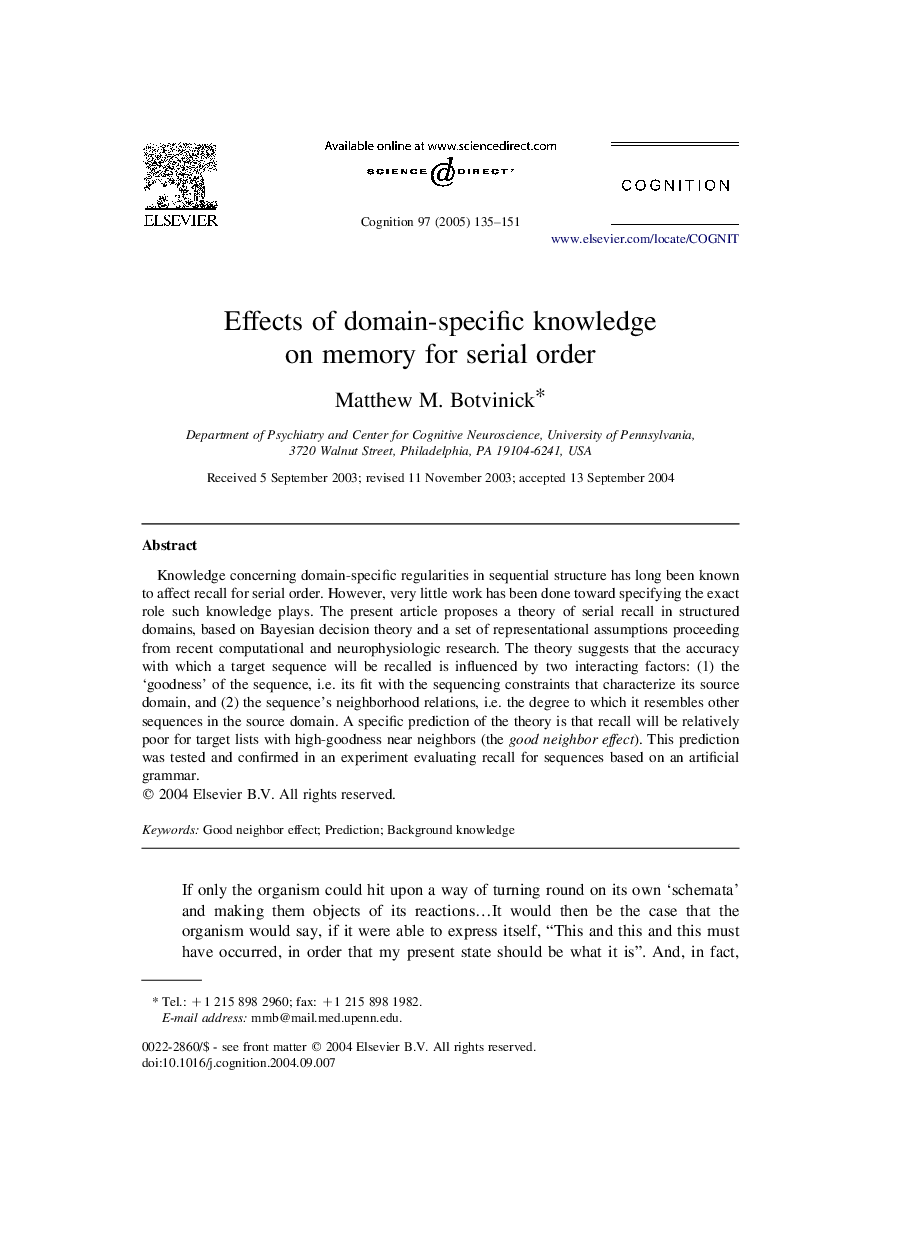| Article ID | Journal | Published Year | Pages | File Type |
|---|---|---|---|---|
| 10458078 | Cognition | 2005 | 17 Pages |
Abstract
Knowledge concerning domain-specific regularities in sequential structure has long been known to affect recall for serial order. However, very little work has been done toward specifying the exact role such knowledge plays. The present article proposes a theory of serial recall in structured domains, based on Bayesian decision theory and a set of representational assumptions proceeding from recent computational and neurophysiologic research. The theory suggests that the accuracy with which a target sequence will be recalled is influenced by two interacting factors: (1) the 'goodness' of the sequence, i.e. its fit with the sequencing constraints that characterize its source domain, and (2) the sequence's neighborhood relations, i.e. the degree to which it resembles other sequences in the source domain. A specific prediction of the theory is that recall will be relatively poor for target lists with high-goodness near neighbors (the good neighbor effect). This prediction was tested and confirmed in an experiment evaluating recall for sequences based on an artificial grammar.
Keywords
Related Topics
Life Sciences
Neuroscience
Cognitive Neuroscience
Authors
Matthew M. Botvinick,
